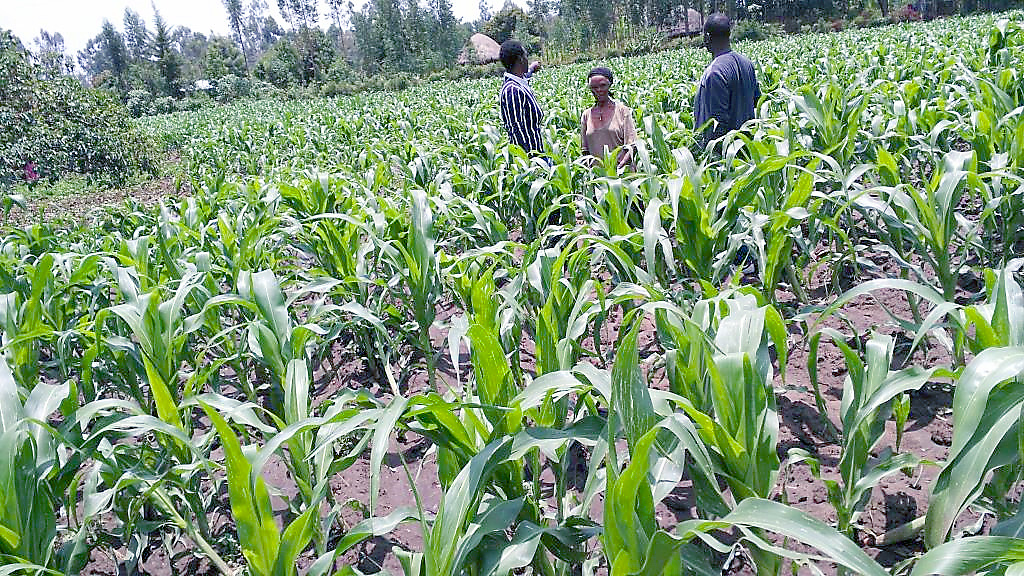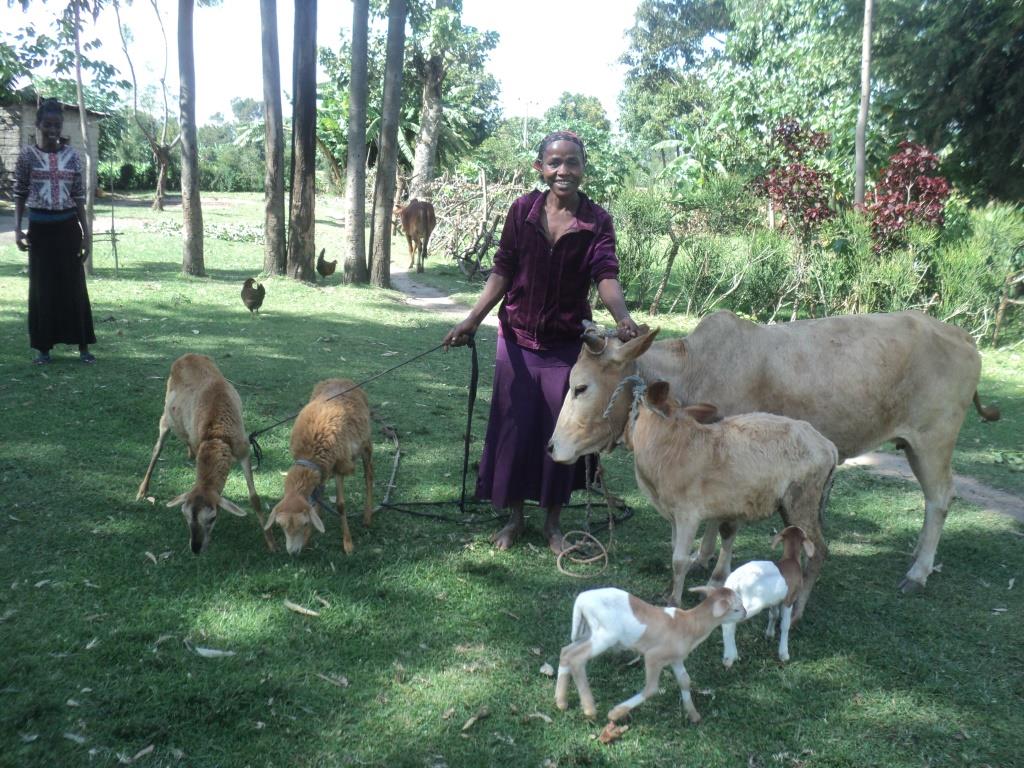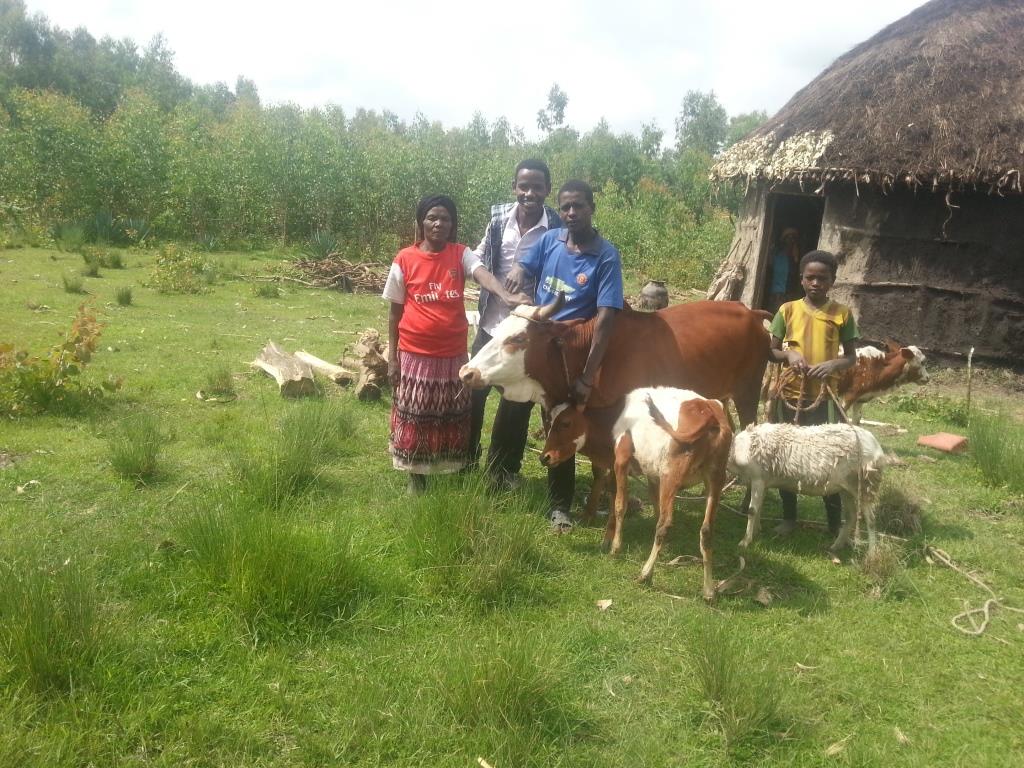Through our Agriculture and Food Security program, SHAPEthiopia equips impoverished women farmers and families with the skills, tools modern fertilizers and improved seeds to produce life-sustaining crops. Tens of thousands of meals are harvested each year for the widows’ families to feed, which simultaneously generates income for local farmers.
WHY AGRICULTURE AND FOOD SECURITY
Ethiopia has significant agricultural potential because of its water resources, its fertile land areas, and its large labor pool but the potential remains underdeveloped – just five percent of land is irrigated, and crop yields from small farms are below regional averages. Market linkages are weak, and the use of improved seeds, fertilizers and pesticides remains limited.
The livelihoods of most of the rural population in Ethiopia is full of economic and social challenges and about 39.3 percent of them live below poverty line. Women in rural parts of the country, especially those who lost their beloved husbands, are the most exposed segments of the society to carry the burden of poverty and food in security alone.
To support these rural impoverished women, SHAPEthiopia has launched two sup-programs named: Widows Hope Poultry and Livestock Development and Crops Farming Programs under our Women Empowerment Program. Through the program, SHAPEthiopia has been supporting hundreds of poor widows in the last twelve years to enable them become self-sufficient.
Through the Poultry and Livestock Development Program, widows are entrusted with a cow, sheep/goat and/or chickens, and they could immediately begin to provide foods rich in dairy product for their children. The widows also get training and ongoing supports from SHAPEthiopia on animal farming and husbandry skills.
And again, beneficiary women who enrolled in our Crops Farming Program take training to equip them with the needed knowledge and skills on crops farming skills, market linkages, and on the issues related to the small business management. Men from the local community volunteered to help the women plow their fields, and also, SHAPEthiopia distributes some modern soil fertilizers like Urea and DAP and pesticides to the widows.
The support has increased the product and productivity of the woman in many folds and the overall living standard of their families have been transformed in many ways. Now, they can feed and dress their children adequately and send them to schools.
OUR IMPACT
 Over 500 participants trained in agriculture, food security, animal husbandry and animal food preparation to date.
Over 500 participants trained in agriculture, food security, animal husbandry and animal food preparation to date.

200 impoverished widows provided with goats, sheep and cows
 Over 150 widows provided with improved seeds, fertilizer and technical assistance
Over 150 widows provided with improved seeds, fertilizer and technical assistance
OUR APPROACH
Widows’ Hope Poultry and Livestock Development Project
 Assets such as farm animals and poultry are sources of food and income in rural Ethiopia. Chickens, sheep, and cows mean nutritious eggs, meat, milk and cheese for the family, and they are sources of income that can help to make the difference between crushing poverty and the family’s ability to work towards a better future.
Assets such as farm animals and poultry are sources of food and income in rural Ethiopia. Chickens, sheep, and cows mean nutritious eggs, meat, milk and cheese for the family, and they are sources of income that can help to make the difference between crushing poverty and the family’s ability to work towards a better future.
Livestock is a valuable asset for families, but a number of single women in Ethiopia cannot afford it. Through the Poultry and Livestock Development Program, a widow is entrusted with a cow, sheep and/or chickens, and she can immediately begin to provide foods rich in dairy product for her children. She also gets training and ongoing support from SHAPEthiopia on animal farming and husbandry skills.
The concerned government body also provides her with vaccinations and vet care to ensure the best success of this project. As the widows begin to earn money, they make small repayments to the Livestock for Widows Fund so more widows can receive support in the future. From this project, about 100 widows have been benefited a cow and a sheep each.
Widows’ Hope Crops Farming Project

Rural Ethiopia is largely made up of sustenance farming. When a woman loses her husband, she will continue to run the farm, including all the physical duty in the land by herself, and most of the time it is very difficult for her to provide her family with the basic necessities at the basic level. In early 2016, SHAPEthiopia was able to provide 71 such women with improved seed, farming training, and technical support — to enable them to restart their small-scale farming.
The women were able to produce high yield Maize, Teff, Sorghum, Beans, Potatoes, Sweet Potatoes, and Onions. These achievements enable them not only to provide nutritious foods for their families but also to generate an income sustainably. As other women in our Widows’ Hope Program, the women take training to equip them with the needed knowledge and skills on crops farming.
Men from the local community volunteered to help the women plow their fields, and also, some modern soil fertilizers like Urea and DAP were distributed. Besides these, they used animal dung and other easily decaying materials, as well as manures of small ruminants that help to keep the fertility of the land. Finally, the women in the program will make small repayments to the Crops for Widows Fund, so more widows and their families can be helped in the future.
